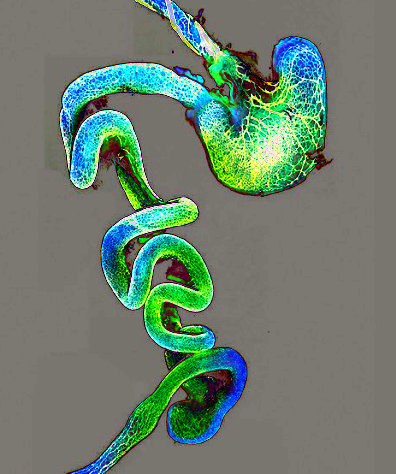Gut bug myths busted
 Experts have responded to common misconceptions about the gut microbiome.
Experts have responded to common misconceptions about the gut microbiome.
Commonly held beliefs about the human microbiome have been called into question by researchers from the UK, revealing the inaccuracies that have been widely accepted as truths.
In a recent article published in Nature Microbiology, Alan Walker and Lesley Hoyles unveil a dozen myths and misconceptions that have seeped into the public consciousness and scientific discourse, lacking a firm foundation of evidence.
As scientific interest and public fascination have surged around the intricate world of the human gut microbiota and its potential implications for health and disease, certain narratives have taken root, often without the rigorous backing of solid research.
Walker and Hoyles identify how these assertions can evolve into widely acknowledged facts, despite their origins in anecdotal observations or a dearth of concrete substantiation.
Among the 12 misconceptions highlighted by the researchers is the misconception that the field of microbiome study is novel.
Contrary to this, the study of microorganisms associated with humans dates back centuries, challenging the notion that this is a recent development.
Another notable myth debunked is the popular belief that the term “microbiome” was coined by Joshua Lederberg. In actuality, the origins of this term are more complex and multifaceted than commonly assumed.
One assertion that has permeated discussions is the claim that the microbial inhabitants of our bodies outnumber human cells by a factor of 10 to 1.
However, this widely cited ratio, stemming from a rough calculation in the 1970s, is far from accurate, with a more realistic ratio standing closer to 1 to 1.
The researchers also bring attention to the notion that the majority of gut microorganisms cannot be cultivated in laboratory settings, a belief that has been disproven by recent advancements in microbiological techniques.
Perhaps most importantly, the authors draw attention to the perpetuation of preliminary links between gut microbiota and diseases that have not stood up to subsequent scientific scrutiny.
Despite lacking robust validation, these associations have persisted, highlighting the need for a more critical and cautious approach.
Walker and Hoyles argue that rectifying these misconceptions is vital to prevent wasted efforts in research, encourage a discerning evaluation of information, and safeguard the credibility of microbiome science in the eyes of the public.







 Print
Print